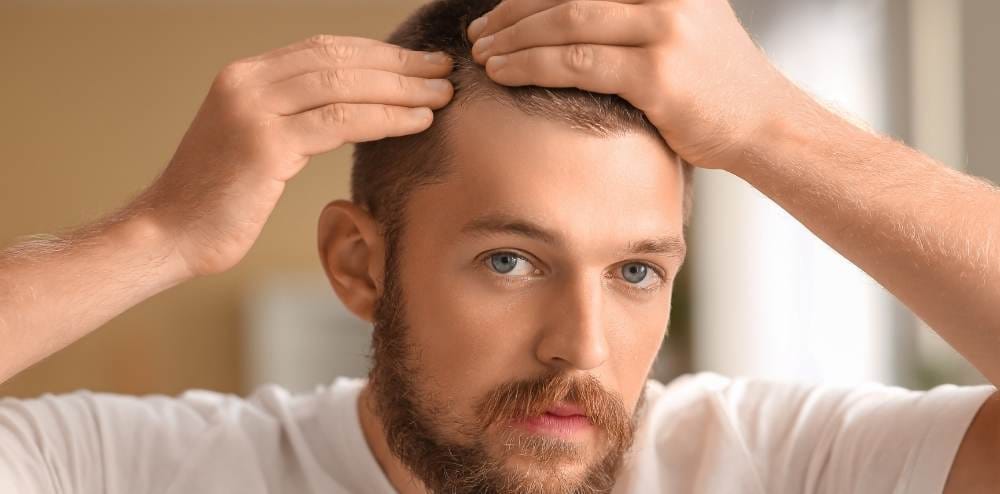We are all aware of the detrimental effects stress can have on our health and happiness, but did you realise it can also have a negative impact on your hair? Understanding the connection between stress and hair loss and knowing how to handle both is crucial because stress can result in hair loss, thinning, and other hair-related issues.
This blog post will discuss the different forms of stress-related hair loss, including telogen effluvium, trichotillomania, and chronic stress-related hair loss. We’ll also discuss some simple strategies for preventing stress-related hair loss, like working out, eating healthily, avoiding extreme temperatures, and not using harsh chemicals on your hair.
Types of Stress-Related Hair Loss
There are various types of hair loss brought on by worry, and each has its own unique set of causes and symptoms. Let’s take a closer look at a few of the most common kinds.
chronic worry results in hair loss
Repeated stress exposure causes a long-term disease known as chronic stress-related hair loss. When we are under stress, our systems release cortisol, a hormone that can interfere with the normal cycle of hair growth and result in hair loss. Over time, this may cause thinning hair and even alopecia.
Alopecia telogen effluvium
A disruption in the typical hair growth cycle results in telogen effluvium, a particular form of hair loss. This can be influenced by a number of factors, including stress, hormonal changes, and specific medical problems. Thinner hair can result from hair that grows out in large clumps when hair development is inhibited.

Trichotillomania
A type of hair loss caused by compulsive hair tugging is called trichotillomania. This condition, which frequently results in patchy baldness or thinning hair, is brought on by worry, anxiety, or other emotional issues.
How to Manage Stress-Related Hair Loss?
So how do you stop hair loss brought on by worry and promote healthy hair growth? Here are some simple actions you can take:

Workout
Adapting an active lifestyle is a great way to reduce stress and encourage the growth of healthy hair. Regular physical exercise can help to lower cortisol levels and lessen the chance of hair loss. Consequently, try to get in at least 30 minutes of exercise each day, whether it be through walking, jogging, biking, or attending a yoga session.

Adapt A Healthy Diet
A healthy diet is essential for the growth of hair. Increase your consumption of fruits and vegetables, lean protein, and healthy fats while reducing the intake of sugar, processed foods, and unhealthy fats. This will make it easier for your body to absorb the nutrients required for strong hair development.
Avoid using a lot of heat
Your hair may become dry, brittle, and prone to breaking as a result of excessive heat damage. Therefore, make every effort to limit your use of heated tools like curling irons, flat irons, and blow dryers. If you must use heat, safeguard your hair from damage by misting it with a heat protectant.
Don’t Use Chemicals On Your Hair
Your odds of experiencing hair loss increase if you use harsh products on your hair, such as bleach, perms, and dyes. Therefore, avoid or use these chemicals. Use natural, semi-permanent dyes and avoide chemical items like relaxers and perms.
In addition to following these recommendations, it’s crucial to manage your stress and get lots of rest and slumber. Such activities include things like profound breathing exercises, meditation, and spending time with close friends and family.
Consult your doctor or a hair loss expert if you’re concerned about hair loss brought on by worry. Additional therapies or medications that can help with stress control and hair growth may be suggested by your doctor. Hair transplant procedure may be necessary in some circumstances where hair loss is extremely severe.
In conclusion, there is a real connection between worry and hair loss, so it’s important to comprehend the different types of stress-related hair loss and what you can do to address them. Making a few simple lifestyle changes can lower your chance of hair loss and promote healthy hair growth. Take care of both your stress levels and your tresses starting today!



